 Petzlover
Petzlover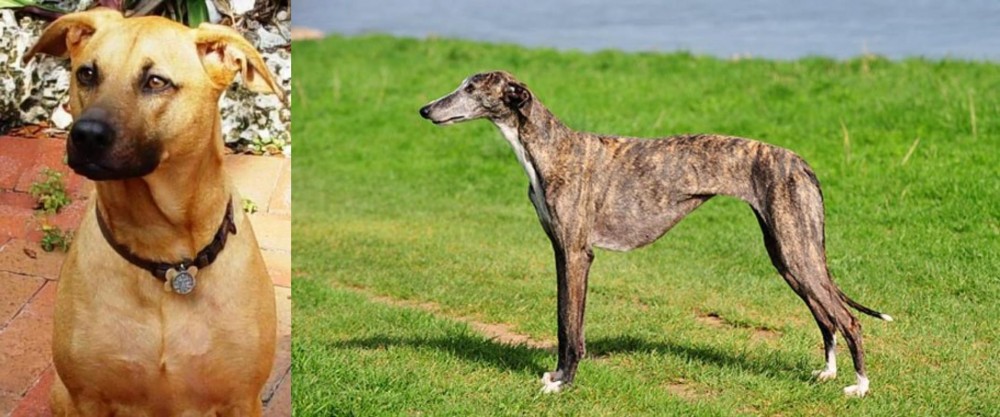 Combai is originated from India but Galgo Espanol is originated from Spain. Both Combai and Galgo Espanol are having almost same height. Both Combai and Galgo Espanol are having almost same weight. Both Combai and Galgo Espanol has same life span. Both Combai and Galgo Espanol has same litter size. Both Combai and Galgo Espanol requires Low Maintenance.
Combai is originated from India but Galgo Espanol is originated from Spain. Both Combai and Galgo Espanol are having almost same height. Both Combai and Galgo Espanol are having almost same weight. Both Combai and Galgo Espanol has same life span. Both Combai and Galgo Espanol has same litter size. Both Combai and Galgo Espanol requires Low Maintenance.
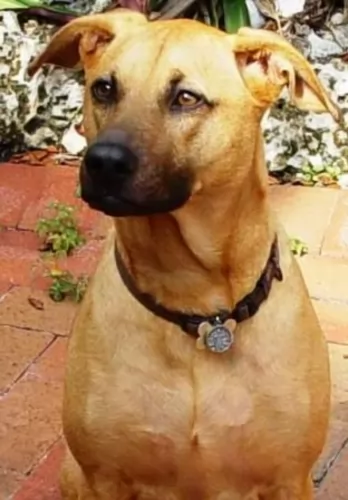 The Combai is a dog from Tamilnadu, Southern India, developed to hunt dangerous animals by the Indian royalty. It is a rare breed in India, believed to be close to extinction.
The Combai is a dog from Tamilnadu, Southern India, developed to hunt dangerous animals by the Indian royalty. It is a rare breed in India, believed to be close to extinction.
The dog is also known as the Indian Bear Hound, Indian Bear Dog and Tamil Bear Hound. You can spell the name of the dog with a ‘C’ or a ‘K’, Combai or Kombai.
Accurate records as to the history of this dog haven’t been kept, so much of the dog’s history is on speculation, although it is believed with some certainty, that the breed has been around since the 15th century. It is thought that the Combai was developed from Mastiff-type dogs, Pariah dogs, the Thai Ridgeback and Khoisan dogs.
 Galgo Espanol means Spanish with galgo meaning greyhound, thus a Spanish Greyhound. This breed is ancient with their roots in perhaps the English greyhound and others in the sighthound family. They are much like the greyhound in that they are laid back, calm, gentle and quiet, unless they are competing on the local track. Like the greyhound they are shy and reserved; great with kids and other pets. And of course, they love cats.
Galgo Espanol means Spanish with galgo meaning greyhound, thus a Spanish Greyhound. This breed is ancient with their roots in perhaps the English greyhound and others in the sighthound family. They are much like the greyhound in that they are laid back, calm, gentle and quiet, unless they are competing on the local track. Like the greyhound they are shy and reserved; great with kids and other pets. And of course, they love cats.
There are dogs like the Galgo referred to in writing by the ancient Celts and Romans. One author, Arrian, had his own Galgos and used them when hunting. The breed flourished in the second half of the Middle Ages in Spain and well into the 8th century. When the Christians regained control of the Iberian Peninsula, they did away with the hunter old forms of hunting and introduced a new form with hounds that made the Galgo the pride of the aristocracy and not in the homes of the ordinary people. Arrian claim to two types of dogs, the smooth and rough coated.
Muslim and Chrisitan Kings kept Galgo Espanols. In all probability the Saluke and Galgo were crossbred at this time. It was illegal to kill a Galgo and in 1081, the Mayor of Cartuario of Slonza left his Galgo in his will to Diego Citid. Dogs seen in painting from the 12th century look just like dogs of this breed who can be seen today.
It is believed that when the Galgo was developed, it was in the midsection of Spain or the Castillian plains. They ruled the interior of the country while the bloodhound ruled the exterior. The 18th and 19th centuries saw very little change in the breed. However, in the 20th century, there was cross breeding with the English greyhound that produced a leaner, faster and powerful track racing dog. The results was a faster dog without the long distance stamina of the pure Galgo. For this reason, the breeders returned to breeding the pure professional racing dog.
The sport of racing the Galgo earns Spain around sixty million dollars per year. They train anywhere from three to four thousand of the Galgos every year for Open Field Coursing Championships. Still, there no longer is any cross breeding between the Greyhound and the Galgo. The current coursing programs feature a hare that is much hardier and difficult to pursue so the stamina of the old Galgo Espanol is desired. In Castile, where these games are played, the landscape is open with large fields that requires that the hare travels far greater distances. This means that the stamina of the original Galgo Espanol is needed.
When not racing the Galgos have become great house pets. They have a reputation as gentle dogs that are docile and quiet, with good health. This reputation is well earned. They are also successful show dogs in Europe much more than the states. This is perhaps because they are really rare outside of Spain. They are not recognized by the United Kennel Club nor the American Kennel Club.
 The Combai is a medium sized dog, standing at between 43 to 64cm in height and weighing up to 34kg. Possibly the most distinctive feature of the Combai is a ridge of fur that runs down its back, with the hair growing in the opposite direction to the dog’s body hair. The coat of the dog is short and smooth with colors being brown, tan or reddish. The dog is medium sized, though size does vary quite a bit . The dog is muscular, lean and athletic with a long tail that curls over the back.
The Combai is a medium sized dog, standing at between 43 to 64cm in height and weighing up to 34kg. Possibly the most distinctive feature of the Combai is a ridge of fur that runs down its back, with the hair growing in the opposite direction to the dog’s body hair. The coat of the dog is short and smooth with colors being brown, tan or reddish. The dog is medium sized, though size does vary quite a bit . The dog is muscular, lean and athletic with a long tail that curls over the back.
The head of the Combai is fairly narrow with a muzzle which is quite long.The ears of the Combai vary as well and usually drop down or they fold backwards.
The Combai’s temperament is by no means gentle and it is believed to be a fierce, angry breed who will fight other dogs to the death.
It is sometimes hard to believe that the Combai, with training and socialization can make a good family pet. He then loves the company of his human family and remains loyal to them. When trained and socialized they also get on well with children in the home.
It isn’t recommended as a first dog choice for those who have never owned a dog as it does tend to be aggressive. The dog is also very territorial and alert and its why he makes a good watchdog.
 Obviously the Galgos looks a lot like the Greyhound, but in some very important ways they are very different. The rear of the Galgos is higher than the front and their muscle are flatter. They are built for endurance while the Greyhound is built for speed. The Galgos is a lighter, smaller dog with larger ear on a long head. They have long tails and their chests are not deep like the Greyhounds.
Obviously the Galgos looks a lot like the Greyhound, but in some very important ways they are very different. The rear of the Galgos is higher than the front and their muscle are flatter. They are built for endurance while the Greyhound is built for speed. The Galgos is a lighter, smaller dog with larger ear on a long head. They have long tails and their chests are not deep like the Greyhounds.
The Galgo comes in smooth and rough coats and a variety of colors. The rough coat protects dogs that are in climates colder than the ones in Spain and also keeps them from injuring their skin while running. The colors include brindle, black, golden, toasted, cinnamon, yellow, red, white, white with patches, or any color as long as they have a white forehead and muzzle.
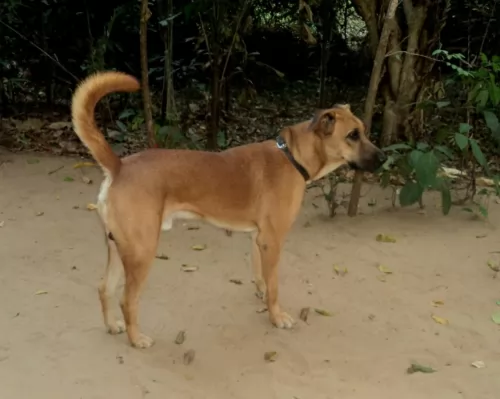 The Combai is known for its bravery and fearlessness and this is what makes him such an exceptional watch dog as he also doesn’t take kindly to strangers.
The Combai is known for its bravery and fearlessness and this is what makes him such an exceptional watch dog as he also doesn’t take kindly to strangers.
The Combai is full of energy too and won’t like to spend days lying around. He will require regular exercise.
Have him trained and socialized and he becomes the most loyal and devoted pet and companion.
 They are good with children, but you need to be careful no one gets knocked down or hurt.
They are good with children, but you need to be careful no one gets knocked down or hurt.
Stamina for running and a good record in lure coursing.
Though they can be couch potatoes like greyhounds they are better off with a fenced yard and not an apartment.
They are smart and can learn anything you want to teach them if you can keep their attention.
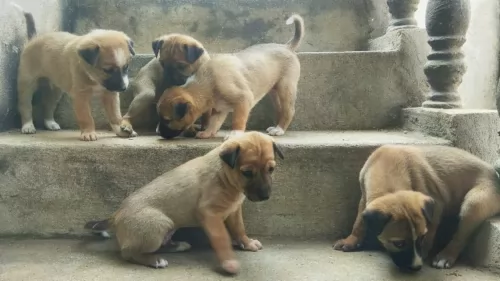 Most dog experts will agree that the Combai is a breed that enjoys excellent health, and that in fact it seems as though the dog is disease- and parasite resistant.
Most dog experts will agree that the Combai is a breed that enjoys excellent health, and that in fact it seems as though the dog is disease- and parasite resistant.
There are however, always common dog illnesses that every dog owner should be aware of and it is always to a dog owner’s benefit to have their pet tested by Foundations such as the Orthopedic- and Canine Eye Registration Foundation who can perform tests to identify potential health defects before they show up.
Some of the ailments of concern in hounds include progressive retinal atrophy, demoid sinus and hip dysplasia.
The Retina is the light sensitive part of the eye and also part of the central nervous system. In retinal degeneration, the cells of the retina decline in function and this is what leads to possible blindness.
Progressive retinal atrophy worsens with time. If your pet doesn’t seem to react to light properly it may be wise to have him checked by the vet.
This defect is found in newborns as well as later on in life, and found primarily in Ridgeback dogs. Dermoid sinus is a neural tube defect that is typically found along your dog’s back, the tail and the neck.
The role of the tubes is to drain out dead cells for example. Not correctly formed, they become infected and an abscess forms with discharge. You will have to get your pet to the vet who will proceed with treatment as your pet can experience pain and discomfort.
 Being a large dog, the Galgo Espanol would normally face a high probability of hip dysplasia. Fortunately for the breed this is not true. In this respect their lightness of weight, their history as a working dog and their anatomy have protected them from it. They are however susceptible to other issues.
Being a large dog, the Galgo Espanol would normally face a high probability of hip dysplasia. Fortunately for the breed this is not true. In this respect their lightness of weight, their history as a working dog and their anatomy have protected them from it. They are however susceptible to other issues.
Malignant tumors that quickly spread throughout the body. Life threatening.
As a sighthound, the Galgo Espanol is prone to have issues anytime with anesthetics. They don’t metabolize the anesthetics like other dogs do. They will take longer to revive, and they are susceptible to hypothermia while under an aesthetic.
While running, they are prone to injuries
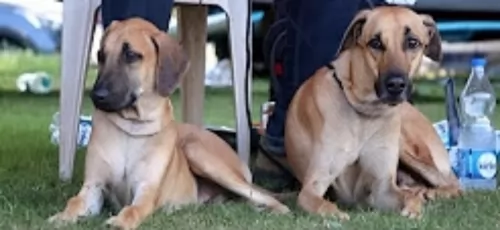 The Combai is an active dog and he will require quite a bit of exercise. A good way of giving him exercise is to take him on walks or allow him to go jogging with you or cycling.
The Combai is an active dog and he will require quite a bit of exercise. A good way of giving him exercise is to take him on walks or allow him to go jogging with you or cycling.
Denying him exercise will make him frustrated and destructive. His high exercise needs mean that he won’t do well in small apartments but will do well in the suburbs or in the country.
With his short coat, the Combai is a low maintenance breed. This breed should never require professional grooming, only an occasional brushing. Other than that, he will require his nails being clipped, his ears checked for infection and his teeth cleaned 2 or 3 times a week.
High energy dogs like the Combai will require a top quality kibble diet recommended by your vet with raw meat included in his diet from time to time as well as nutritious cooked food added in such as brown rice, vegetables and cooked chicken. Fresh water must be available to him night and day non-stop.
 Feed your puppy a high quality dry food made for large breed dogs. Feed 3 meals a day 2.5 to 3 cups total for the day.
Feed your puppy a high quality dry food made for large breed dogs. Feed 3 meals a day 2.5 to 3 cups total for the day.
Feed your adult Galgo a high quality dry food made for large breed dogs. Feed 2 meals a day but don’t overfeed Give 4-5 cups total for the day.
They have amazing stamina and good speed. Generally good health as a breed.
He can be a couch potato indoors and runs forever outdoors. He does need daily exercise and bedrest both. The best would be if you could sprint him every day or have a small yard he can play in. They excel of course at agility and lure coursing. Keep them on a leash because if they run you will never catch them. The American Sighthound Field Association presents lure coursing events that they are eligible for. They have exceled at show competition in Europe but are not well known in the U.S.